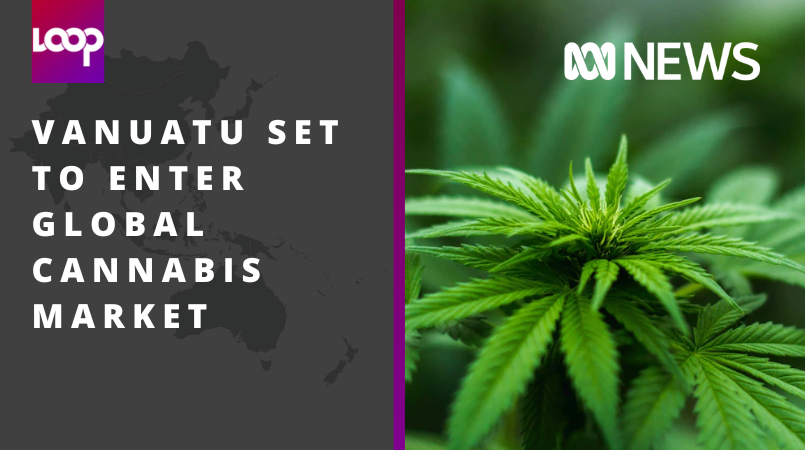
Vanuatu has become one of the first Pacific countries to allow businesses to grow medicinal cannabis and hemp, after signing into law policies governing the import, cultivation and manufacture of the plant.
Key points:
- Vanuatu's government wants to make industrial hemp and medicinal cannabis a key export commodity
- Policeman-turned-businessman Isso Kapum says it will bring wealth to ni-Vanuatu people
- Tafea Province Agricultural Officer (Tanna) Sam Naiu fears people will abuse, steal the drug
It paves the way for the country to enter the global cannabis market, with some hoping the plant can become a major cash-crop for local communities.
The government has made at least five 10-year licenses available for businesses to purchase – two for growing medicinal cannabis and three for hemp production – for 10 million Vatu each ($123,000).
Businesses are also expected to pay an additional 10 million Vatu every year as a license renewal fee.
Medicinal cannabis is most often used to relieve chronic pain and has also been used to treat anxiety, cancer-related symptoms, epilepsy, insomnia and multiple sclerosis (MS).
Hemp typically has less of the psychoactive compound tetrahydrocannabinol, and can be used in products including rope, textiles, clothing, shoes, food, paper, bioplastics, insulation, and biofuel.
The director-general of Vanuatu's Agricultural Department, Moses Amos, told local broadcaster VBTC the policies aimed to encourage foreign investment in the country.
"The government is especially focused on alternative resources that we can use, and one of them is industrial hemp and medicinal cannabis," he said.
"It's a potential resource that we can use and develop to become a potential export commodity for us, and at the same time bring a little money into the country."
High risk industry
In an attempt to mitigate the "high risks" associated with the cannabis industry, the government has said it will only approve licenses for companies with at least 10 years' experience in the field.
That would mean only foreign businesses from countries with long-standing marijuana industries like the US would be eligible.
But the move remains controversial in Vanuatu, where recreational use of the drug has a huge social stigma and remains illegal.
Former police officer Isso Kapum says he used to "chase criminals" who smoked or sold marijuana illegally.
But today he is hoping for a license to grow cannabis on his southern island, Tanna, believing it will bring development and riches to Vanuatu's people.
"I did find out that it is very, very valuable to the islands of the Southern Hemisphere," he said.
"On the island, we really have to identify a product that has demand and a product that has value and a product to sustain the people."
An 'exciting' time for business
Mr Kapum said a chance encounter with Australian resort owner Andrew Smith first sparked his interest in hemp and cannabis farming.
Together, they founded Tafea Industries, a cannabis and hemp company with plans to begin the first commercial marijuana plantation on Tanna if they gain the government's approval.
Mr Smith said the pair was almost driven out of the village when they first proposed the business idea.
"The reactions just by some were quite harsh," he said.
"But it was nothing more than opening minds and showing opportunities."
"Once we started to break it down a little bit, they started to see the opportunity of farming, the opportunity of aftermarket products."
He says Tafea Industries now has the support of tribal chiefs around the island, who have also become shareholders in the cannabis company, and believes the release of cannabis and hemp licenses marks an "exciting" moment for Vanuatu.
To read more, click on this link
Story first published on ABC News Australia
